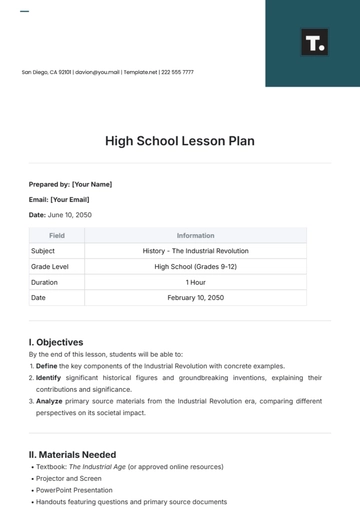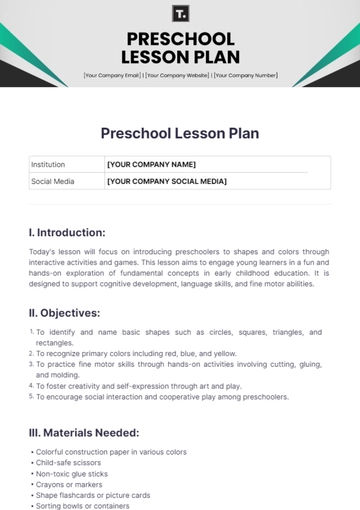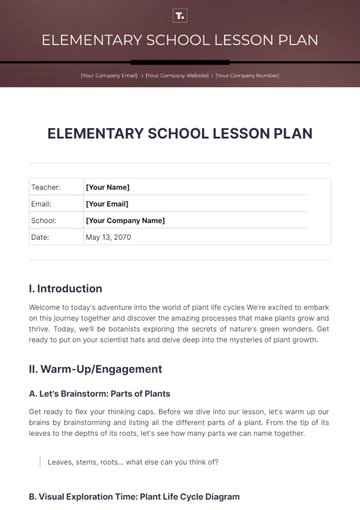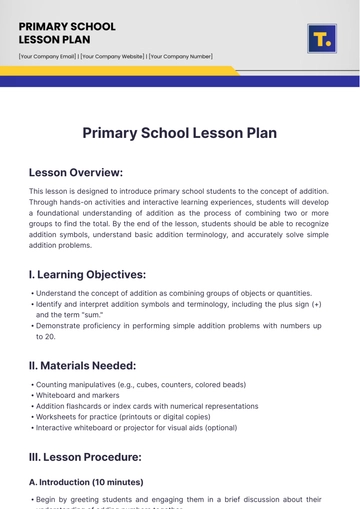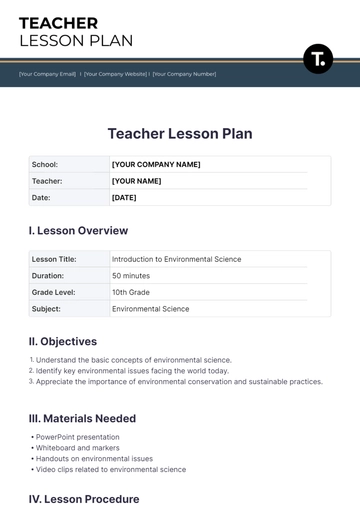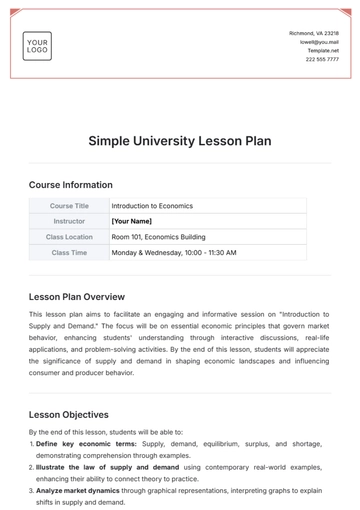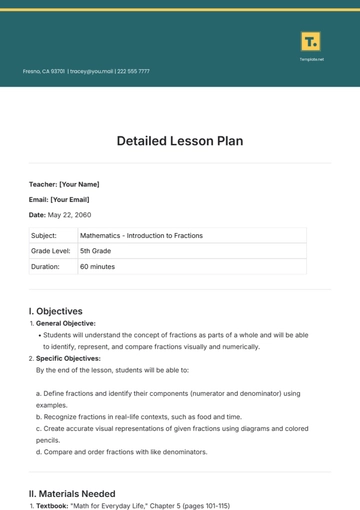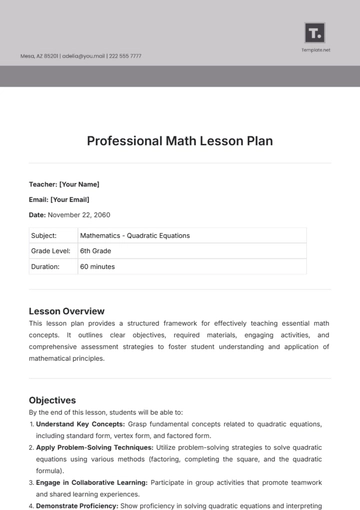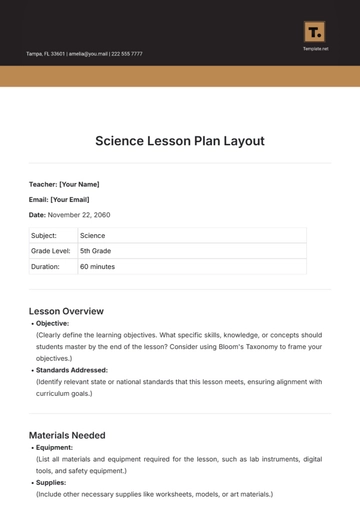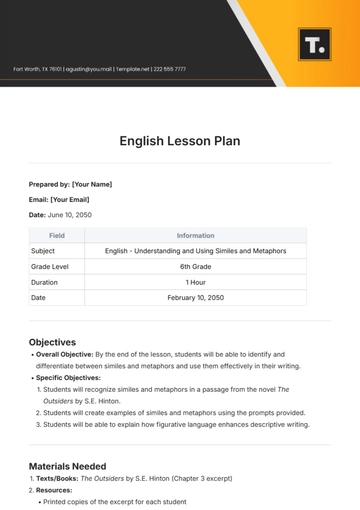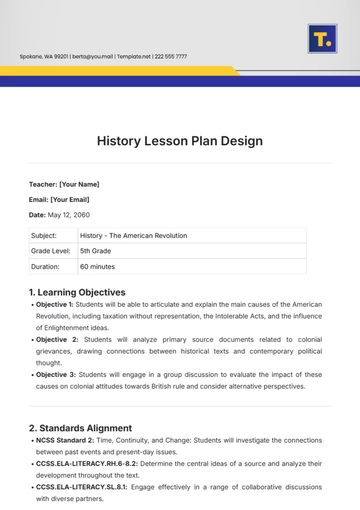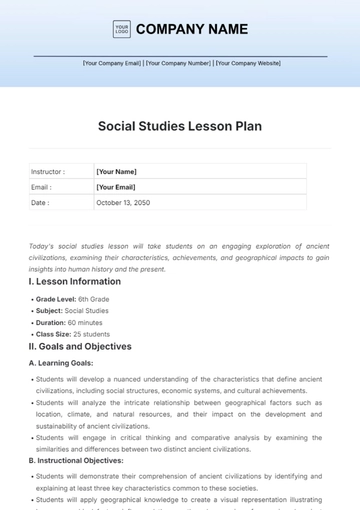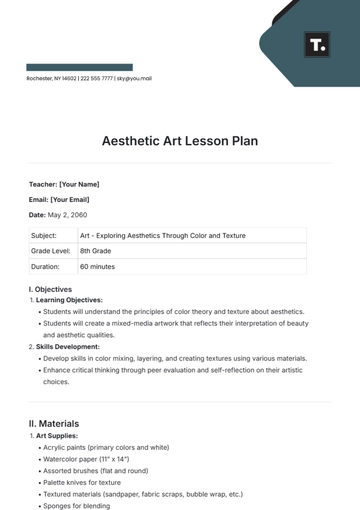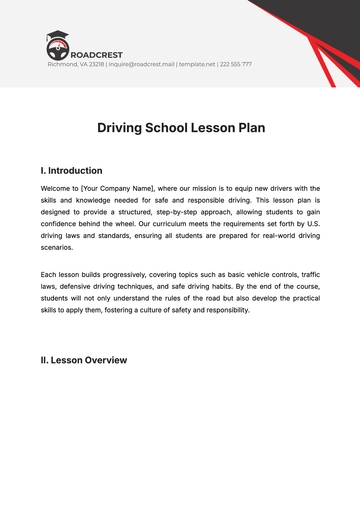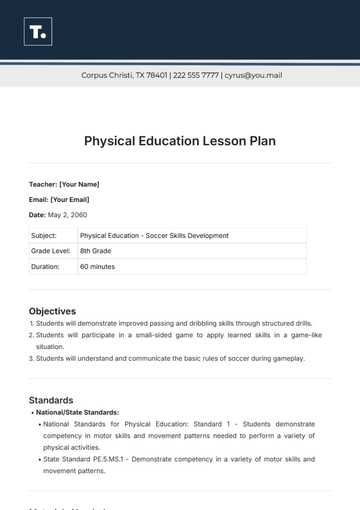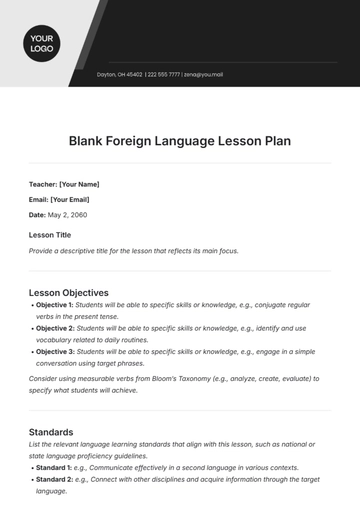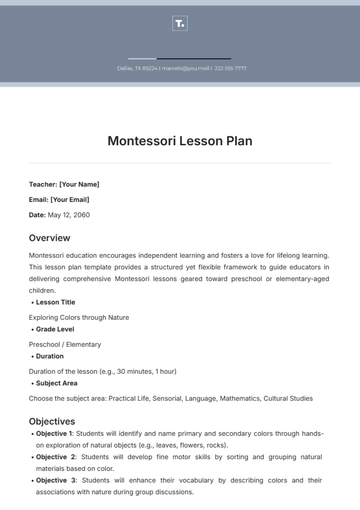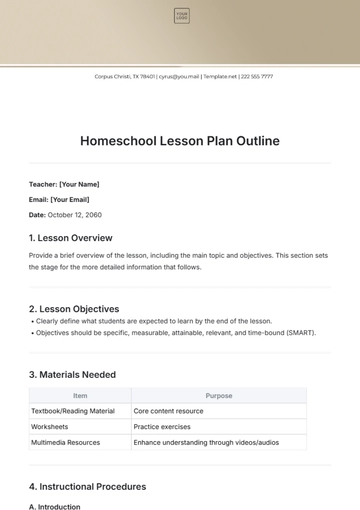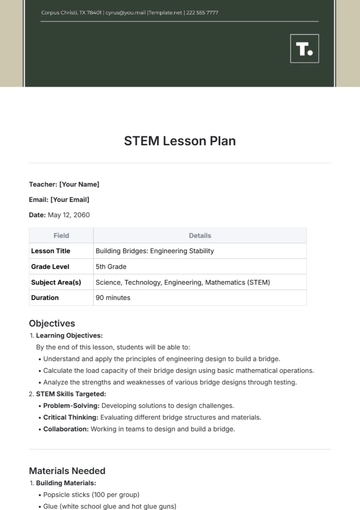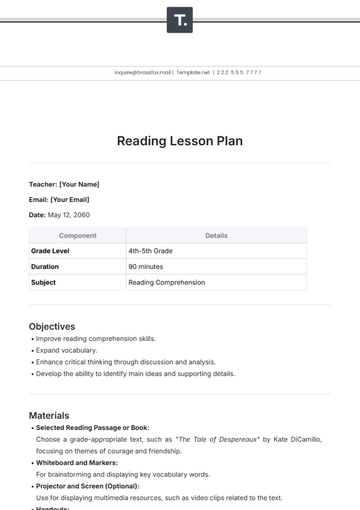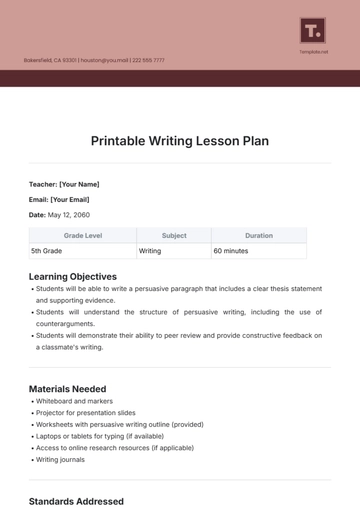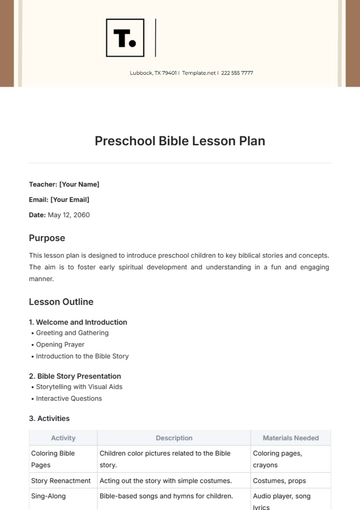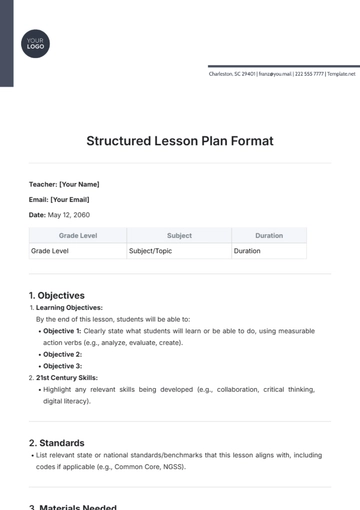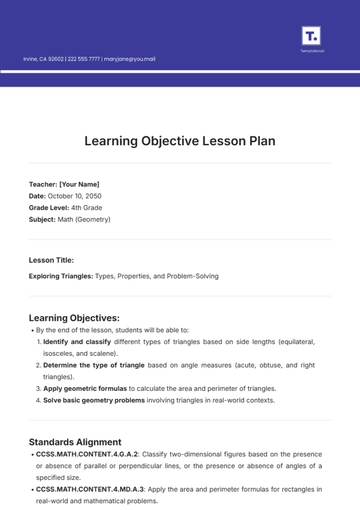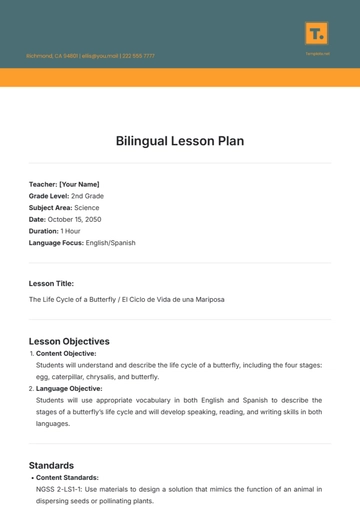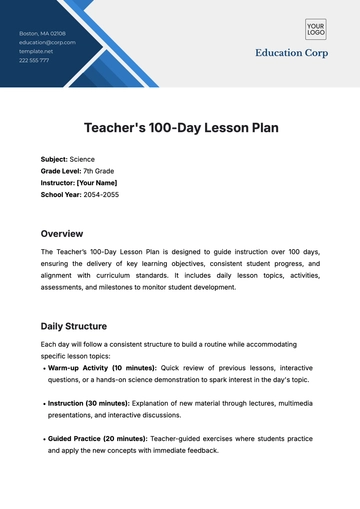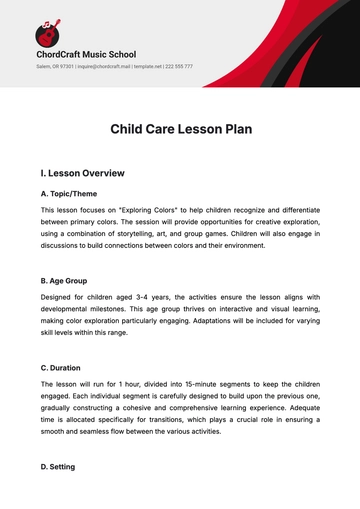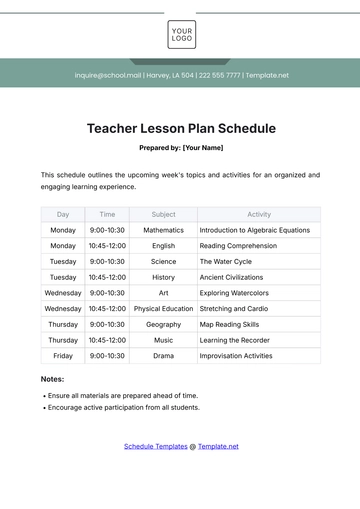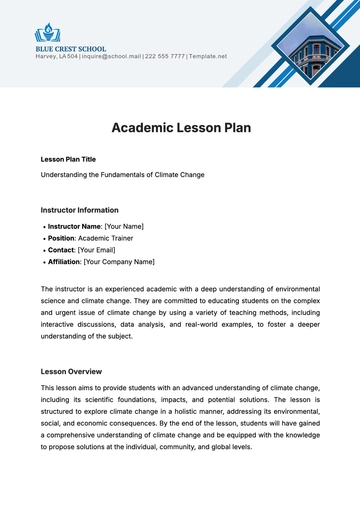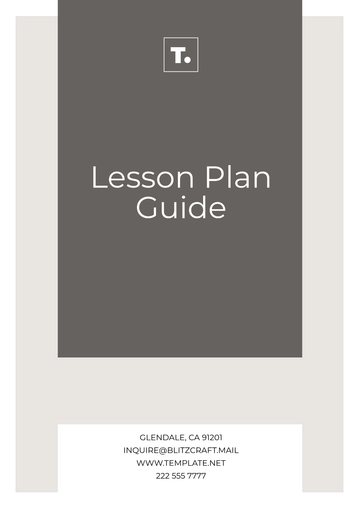Free Nursing School Lesson Plan
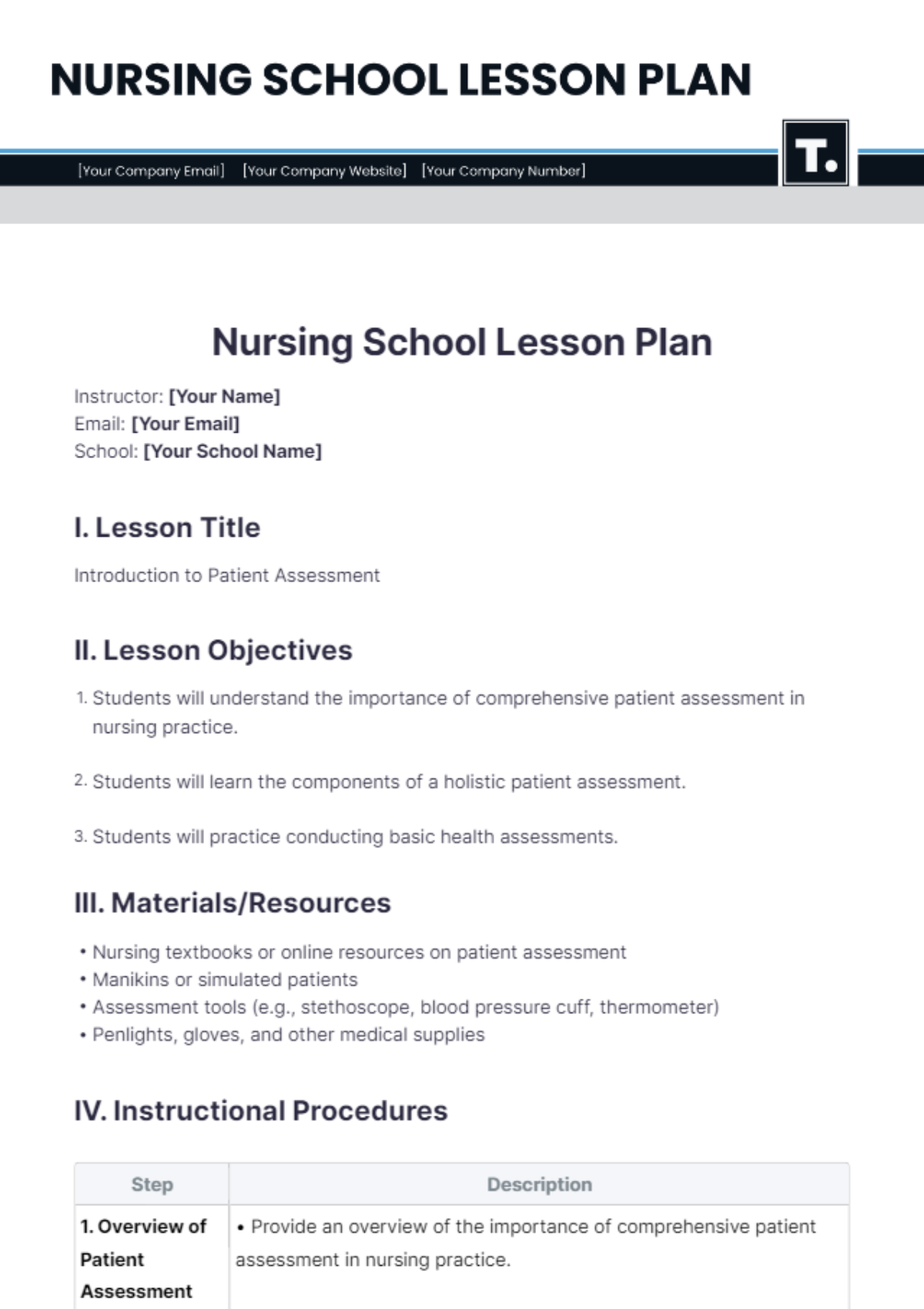
Instructor: [Your Name]
Email: [Your Email]
School: [Your School Name]
I. Lesson Title
Introduction to Patient Assessment
II. Lesson Objectives
Students will understand the importance of comprehensive patient assessment in nursing practice.
Students will learn the components of a holistic patient assessment.
Students will practice conducting basic health assessments.
III. Materials/Resources
Nursing textbooks or online resources on patient assessment
Manikins or simulated patients
Assessment tools (e.g., stethoscope, blood pressure cuff, thermometer)
Penlights, gloves, and other medical supplies
IV. Instructional Procedures
Step | Description |
|---|---|
1. Overview of Patient Assessment | • Provide an overview of the importance of comprehensive patient assessment in nursing practice. • Discuss how assessment serves as the foundation for nursing care, guiding clinical decision-making and the development of individualized care plans. • Emphasize the holistic nature of patient assessment, which encompasses physical, psychological, social, and spiritual dimensions of health. |
2. Components of Assessment | • Explore the key components of a thorough patient assessment in detail. • Break down the assessment process into systematic steps, including health history taking, physical examination techniques, and the use of assessment tools and instruments. • Demonstrate proper assessment techniques, such as inspection, palpation, percussion, and auscultation, and provide opportunities for hands-on practice. |
3. Integration of Critical Thinking Skills | • Integrate critical thinking exercises throughout the lesson to enhance students' clinical reasoning and decision-making abilities. • Present case studies or simulated patient scenarios that require students to analyze assessment findings, prioritize nursing interventions, and anticipate potential complications or changes in patient status. • Facilitate group discussions and debriefings to encourage students to articulate their thought processes and rationale for clinical judgments. |
V. Assessment
Evaluate students' mastery of patient assessment skills through various formative and summative assessment methods. These may include:
Direct observation of students performing patient assessments on simulated patients or manikins, using predetermined assessment criteria.
Checklists or rubrics to assess students' proficiency in conducting health history interviews, performing physical examinations, and interpreting assessment findings.
Written examinations or quizzes to assess students' understanding of assessment principles, techniques, and related nursing concepts.
Peer and self-assessment activities, such as peer feedback sessions or reflective journaling, to promote self-awareness and continuous improvement in assessment skills.
VI. Reflection and Extension
Foster reflective practice by encouraging students to reflect on their experiences during the lesson and identify areas for further growth and development in patient assessment. Facilitate guided reflections through debriefing sessions or structured reflection prompts, prompting students to consider their strengths, challenges, and strategies for improvement.
Provide extension opportunities for students to apply their assessment skills in real-world clinical settings or simulation environments. Offer clinical practicum experiences or simulation scenarios that simulate authentic patient care situations, allowing students to practice and refine their assessment skills under supervision.
Encourage ongoing self-directed learning and professional development by recommending additional resources, such as textbooks, online modules, or continuing education courses, on advanced assessment techniques, specialized assessment areas (e.g., pediatric assessment, geriatric assessment), and cultural competency in assessment. Support students in setting personalized learning goals and seeking out opportunities for skill enhancement beyond the classroom.
- 100% Customizable, free editor
- Access 1 Million+ Templates, photo’s & graphics
- Download or share as a template
- Click and replace photos, graphics, text, backgrounds
- Resize, crop, AI write & more
- Access advanced editor
Improve your nursing education curriculum with the Nursing School Lesson Plan Template, available from Template.net. This professional, customizable template is designed to meet the rigorous demands of nursing education. Downloadable and printable, it supports efficient lesson planning. Editable in our AI Editor Tool, it allows you to tailor each lesson to ensure comprehensive and effective learning outcomes.
